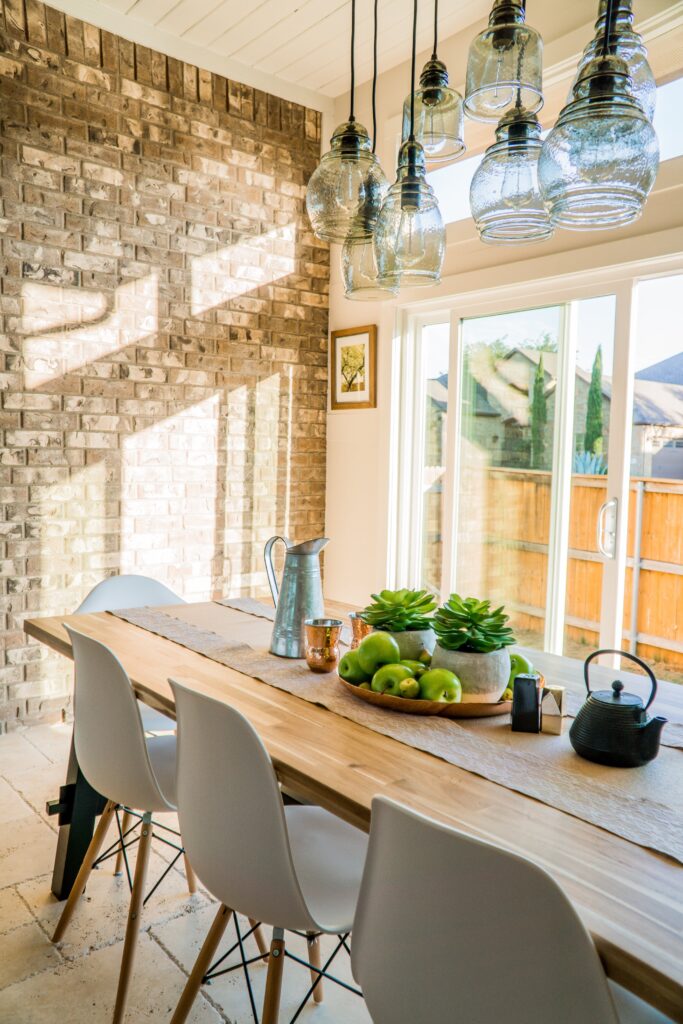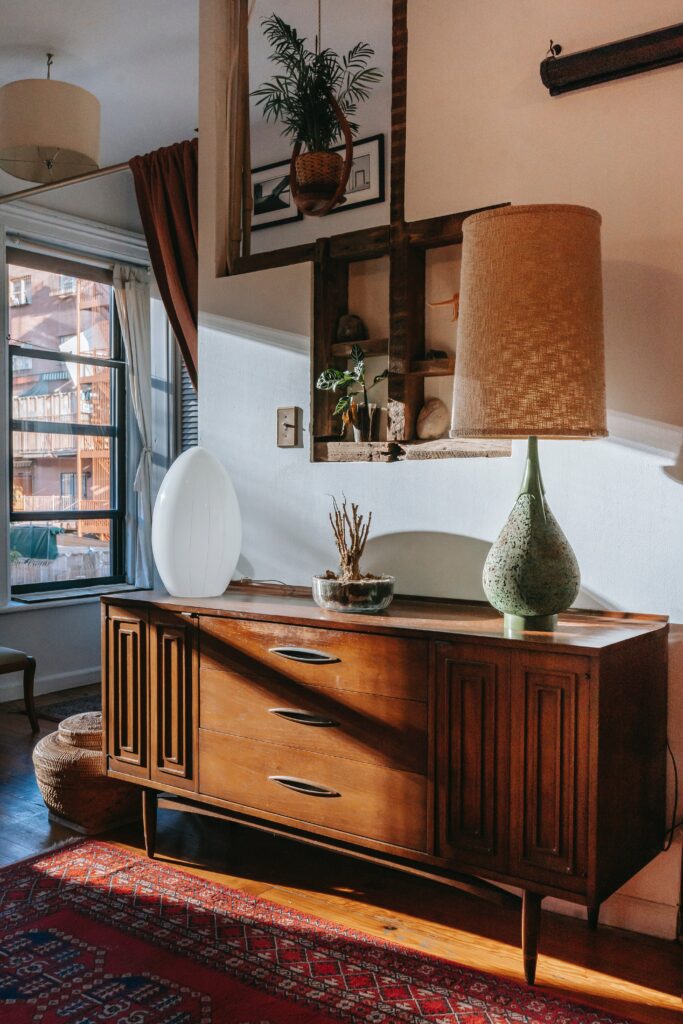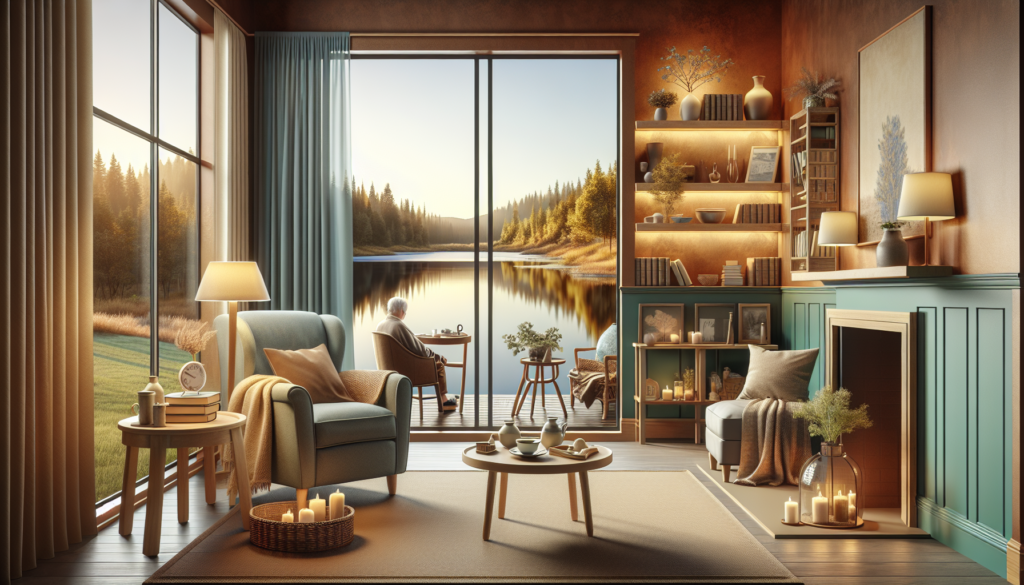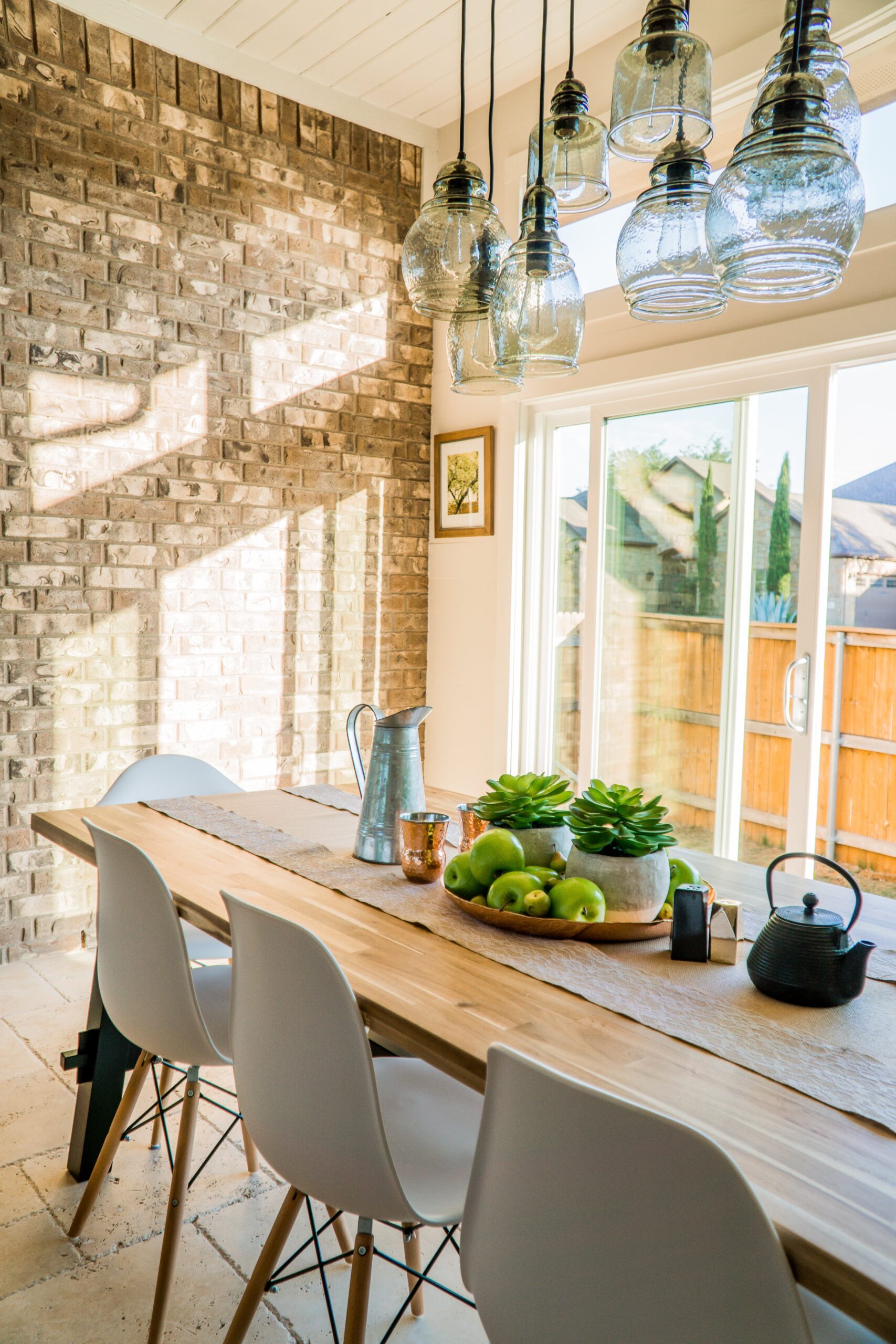So, you’ve reached that stage of life where retirement is just around the corner, and you’re starting to think about finding a place to settle down and enjoy those golden years. But before you jump right into the home-buying process, there are a few key considerations to keep in mind. From location to amenities to future-proofing, this article will guide you through the important factors you need to consider when buying a retirement home. Whether you’re looking for a peaceful beachfront retreat or a lively community with plenty of activities, we’ve got you covered. So, let’s dive in and explore what it takes to find the perfect retirement haven.
Location
Proximity to family and friends
One of the most crucial factors to consider when buying a retirement home is its proximity to family and friends. Being close to loved ones allows you to maintain strong personal connections and enjoy frequent visits and gatherings. The emotional support, companionship, and joy that come from being near your loved ones are invaluable in your golden years. Plus, having family and friends nearby means you can easily rely on them for help or assistance whenever needed.
Weather and climate
Another important consideration is the weather and climate of the location. Do you prefer a mild, temperate climate or enjoy the four distinct seasons? It’s essential to evaluate which type of weather suits your lifestyle and preferences. Consider factors like extreme heat, cold, humidity, or frequent rain. A climate that aligns with your desired activities, health considerations, and overall comfort is vital in making your retirement enjoyable and fulfilling.
Access to healthcare facilities
As we age, access to quality healthcare becomes more critical. Consider the availability and proximity of healthcare facilities, such as hospitals, clinics, and specialists, when choosing your retirement home. Having easy access to medical services ensures prompt, convenient care in case of emergencies or routine check-ups. Look for areas with reputable healthcare providers and a wide range of medical services to cater to your specific healthcare needs.
Transportation options
Assessing transportation options is crucial when selecting a retirement home. Choose a location that offers convenient and accessible transportation services. Look for nearby airports, highways, and public transportation options like buses or trains. Additionally, consider the availability of taxis or rideshare services for those times when you don’t feel like driving. Accessible transportation options enable you to maintain your independence and easily navigate your surroundings for social activities, medical appointments, or exploring new places.
Size and Layout
Single-story or accessible design
When it comes to the size and layout of your retirement home, consider your present and future mobility needs. Single-story homes or those with accessible designs are ideal, as they eliminate the need to climb stairs and reduce the risk of falls or injuries. A home with wide hallways, spacious doorways, and grab bars in bathrooms can make aging in place easier and more comfortable for years to come.
Number of bedrooms and bathrooms
Another factor to consider is the number of bedrooms and bathrooms in your retirement home. Assess your specific requirements, whether you need an extra room for guests, a dedicated office space, or a hobby room. Multiple bathrooms can provide convenience and privacy for you and your visitors. Choose a layout that suits your lifestyle and allows for easy navigation throughout the house, even if mobility becomes a concern in the future.
Open floor plan
An open floor plan is gaining popularity among retirees due to its spaciousness, accessibility, and flexibility. It creates a seamless flow between rooms, making it easier to move around and interact with others. Open floor plans promote a sense of togetherness and allow for easier entertaining, as it eliminates barriers and obstacles. Consider this layout option to enhance your retirement living experience and create a welcoming, inclusive atmosphere for your loved ones.
Storage space
Ample storage space is essential to ensure your retirement home remains organized and clutter-free. Consider the availability of closets, cabinets, and other storage options to accommodate your belongings comfortably. Assess your storage needs and evaluate whether the home offers enough space to store items like seasonal clothing, holiday decorations, and sentimental belongings. Adequate storage helps promote a peaceful and functional living environment, allowing you to enjoy a stress-free retirement.

Affordability
Budgeting for a retirement home
Before diving into the process of buying a retirement home, it’s crucial to establish a budget that aligns with your financial goals and resources. Take a comprehensive look at your income, savings, and projected expenses to determine how much you can comfortably afford. Consider consulting with a financial advisor who specializes in retirement planning to ensure you make informed decisions and create a realistic budget that supports your desired lifestyle.
Understanding ongoing costs
Beyond the initial purchase price, it’s essential to understand the ongoing costs associated with owning a retirement home. These costs may include property taxes, homeowners’ association fees, utilities, maintenance, and insurance premiums. Evaluating the long-term financial commitment allows you to plan your budget effectively and avoid any financial strain in the future. Be sure to factor in potential increases in costs and budget accordingly to maintain your financial stability throughout your retirement years.
Considering property taxes and insurance
Property taxes and insurance are significant ongoing expenses associated with owning a retirement home. Research the property tax rates in the area you’re considering and understand how they may increase over time. Additionally, evaluate the cost of homeowner’s insurance and ensure you have adequate coverage to protect your investment. Understanding these expenses helps you make an informed decision and avoid any unexpected financial burdens.
Exploring financing options
If purchasing a retirement home outright isn’t financially feasible, it’s essential to explore financing options. Traditional mortgages, reverse mortgages, or home equity loans are potential avenues to consider. Research and compare the terms, interest rates, and repayment options to determine which loan structure aligns with your financial goals. Consult with a mortgage professional or financial advisor who can guide you through the process and help you make the best decision based on your unique circumstances.
Lifestyle and Amenities
Active adult communities
Active adult communities cater specifically to retirees and offer a wide range of amenities and activities tailored to their interests and preferences. These communities often provide opportunities for socialization, fitness classes, recreational activities, and clubs or groups with shared hobbies or interests. Living in an active adult community can help you maintain an active, engaged lifestyle and foster connections with like-minded individuals who are in a similar stage of life.
Recreational facilities and activities
When choosing a retirement home, consider the availability of recreational facilities and activities in the surrounding area. Look for nearby parks, golf courses, walking trails, or fitness centers that align with your interests and hobbies. Access to recreational opportunities keeps you engaged, physically active, and promotes overall well-being. Additionally, explore any community programs or classes that offer opportunities for learning or trying new activities.
Pet-friendly environments
If you have beloved pets, it’s important to consider a retirement home that welcomes furry companions. Look for pet-friendly communities or neighborhoods that offer amenities like dog parks, grooming services, or walking trails. A pet-friendly environment ensures that both you and your four-legged friends can enjoy a fulfilling and active retirement together. Keep in mind any pet-related rules or restrictions that may be in place to ensure a seamless transition for both you and your beloved pets.
Nearby amenities and services
Evaluating the proximity of essential amenities and services is crucial to ensure a comfortable retirement. Consider the convenience of having grocery stores, pharmacies, restaurants, and other necessary services nearby. Accessible amenities save you time and effort on everyday tasks, making your retirement more relaxing and convenient. Additionally, research cultural or recreational facilities like theaters, libraries, or museums that align with your interests to enhance your quality of life.

Safety and Security
Gated or age-restricted communities
Safety and security are key considerations when choosing a retirement home. Gated communities or age-restricted neighborhoods often provide added security measures like controlled access, security patrols, or surveillance systems. These communities foster a sense of safety and peace of mind, allowing you to enjoy your retirement without constant worry about unauthorized individuals entering the premises.
Home security systems
Installing a home security system can significantly enhance the safety of your retirement home. Look for homes with pre-installed security systems or evaluate the feasibility of adding one. Advanced security features such as alarm systems, security cameras, and motion detectors can help deter potential intruders and provide added peace of mind. Additionally, explore options for remote monitoring and smart home integration to ensure you can easily manage and control your home’s security even if you are away.
Emergency preparedness
It’s essential to assess the emergency preparedness of both the home and the surrounding community. Consider the proximity to medical facilities, fire departments, and police stations. Research the local emergency response times and ensure there are well-established emergency plans in place. Additionally, evaluate the home’s accessibility features, such as emergency exits or grab bars, that can aid in any emergency situation. Being prepared for unexpected events ensures your safety and ensures a better quality of life during your retirement.
Accessible features for aging in place
When choosing a retirement home, consider the accessibility features that promote aging in place. Features like grab bars in bathrooms, wheelchair ramps, or wider doorways can be essential for maintaining independence as mobility may become more challenging in the future. Assess the accessibility of the home to accommodate any present or potential future needs and ensure a safe and comfortable living environment that supports your changing capabilities.
Resale Value
Researching real estate market trends
While buying a retirement home is a personal decision, it’s essential to consider the potential resale value. Research the real estate market trends in the area you’re interested in to understand how property values may appreciate or depreciate over time. Being aware of the market conditions ensures that you make a wise investment that retains its value or potentially even increases as the years go by.
Considering potential future needs
As you age, your needs may change, and it’s essential to consider these potential future needs when buying a retirement home. Assess factors such as accessibility, proximity to medical facilities, and the availability of home care services. Choosing a home that can accommodate potential changes in health or mobility ensures that you can age in place comfortably and avoid the need for further relocation as you require more assistance.
Location attractiveness for future buyers
The location of your retirement home plays a significant role in its potential resale value. Consider the desirability of the area, including the proximity to amenities, natural beauty, and overall appeal. Choosing a location that remains attractive to future buyers increases the likelihood of maintaining or potentially increasing your property’s value. Research the local real estate market and consult with real estate professionals to ensure you make a wise investment decision.
Home improvements and renovations
Renovations and home improvements can significantly impact the resale value of your retirement home. Consider any updates or renovations that may add value to the property, such as kitchen or bathroom upgrades, energy-efficient features, or improved landscaping. Prioritize improvements that align with the tastes and preferences of potential future buyers. While it’s important to create a home that suits your current needs, keeping an eye on resale value ensures a solid investment for your future.

Maintenance and Upkeep
Assessing the level of maintenance required
Maintenance requirements can vary depending on the type of retirement home you choose. Assess the level of maintenance required, including yard work, exterior upkeep, and general repairs. Consider whether you prefer a low-maintenance option, such as a condo or townhome, where some exterior maintenance may be taken care of by the homeowners’ association. Determine the time and effort you are willing to invest in maintaining your retirement home to find a suitable option that matches your preferences.
Homeowners associations and their fees
Many retirement communities have homeowners’ associations (HOA) that oversee the maintenance of common areas and enforce specific rules and regulations. Research the HOA fees and understand what they cover, such as landscaping, snow removal, or community amenities. HOA fees contribute to the overall maintenance and upkeep of the community, but they may impact your budget. Evaluate the value and benefits of the services provided by the HOA to determine if it aligns with your needs and financial capabilities.
Landscaping and yard work
If you enjoy spending time outdoors and gardening, consider the level of landscaping and yard work required in your retirement home. Assess factors such as the size of the yard, availability of irrigation systems, or the need for regular lawn maintenance. Determine whether you prefer a low-maintenance yard or a more extensive gardening opportunity. Understanding your preferences and capabilities allows you to find a retirement home that offers the ideal balance for your desired lifestyle.
Availability of home repair services
Having access to reliable home repair services is crucial in maintaining your retirement home. Consider the availability of local contractors, plumbers, electricians, and other professionals who can promptly address any repairs or maintenance needs. Assess the reputation and reliability of these services to ensure you receive quality workmanship and avoid unnecessary stress or inconvenience. The availability of reliable home repair services allows you to maintain your retirement home in excellent condition and ensures comfort and peace of mind.
Community and Social Life
Engaging with like-minded individuals
Retirement is an opportunity to cultivate new friendships and engage with like-minded individuals who share your interests and passions. Consider the sense of community and the opportunities for socializing offered by the retirement home or the surrounding area. Look for communities that foster connections through shared activities, clubs, or events. Having an active social life contributes to your overall happiness and well-being during your golden years.
Social clubs and activities
When choosing a retirement home, explore the variety of social clubs and activities available in the community. Look for clubs or groups focused on hobbies like art, music, gardening, or sports. Engaging in activities you enjoy with others who share your interests promotes mental stimulation, personal growth, and a sense of belonging. Having access to a diverse range of activities ensures that you can continue to explore new passions and enjoy a fulfilling social life.
Community events and gatherings
Living in a community that hosts regular events and gatherings creates opportunities for connection and meaningful experiences. Look for communities that organize events like holiday parties, educational seminars, or group outings. These events foster a sense of belonging and create memories with friends and neighbors. The vibrant social scene enriches your retirement experience and enhances your overall quality of life.
Volunteer opportunities
Retirement often presents an opportunity to give back and contribute to the community. Look for retirement homes or neighborhoods that offer volunteer programs or opportunities to get involved in local charitable organizations. Volunteering not only makes a difference in the lives of others but also provides a sense of purpose and fulfillment during your retirement. Consider the availability of volunteer opportunities and find a retirement home that supports your desire to make a positive impact in your community.

Legal and Financial Considerations
Consulting with a real estate agent
When purchasing a retirement home, it’s advisable to consult with a knowledgeable and experienced real estate agent who specializes in retirement properties. A real estate agent can guide you through the process, help you identify suitable options, and negotiate on your behalf. With their expertise, you can make informed decisions, navigate legal complexities, and ensure a smooth home-buying experience.
Understanding legal documents and contracts
Buying a retirement home involves various legal documents and contracts that protect your rights and interests. It’s crucial to thoroughly understand these documents before signing anything. Consider engaging a real estate lawyer to review the contracts and explain any legal terms or clauses. Understanding the legal aspects ensures that you make informed decisions and safeguards your investment in your retirement home.
Estate planning and wills
Estate planning is an essential consideration when purchasing a retirement home. Plan for the future by consulting with an estate planning attorney to create or update your will, establish trusts, and designate beneficiaries. Proper estate planning ensures that your retirement home and other assets are distributed according to your wishes. Taking care of these important legal matters provides peace of mind and protects your loved ones in the event of incapacity or death.
Tax implications of buying a retirement home
Before buying a retirement home, it’s crucial to understand the potential tax implications. Research property tax rates in the area you’re interested in and assess how they may impact your budget. Additionally, consider any tax benefits or deductions related to owning a retirement home, such as homestead exemptions or senior tax exemptions. Consult with a tax professional to understand the specific tax implications based on your financial situation and the location of your retirement home.
Emotional and Personal Factors
Considering personal preferences and aspirations
Your personal preferences and aspirations should guide your decision when buying a retirement home. Consider factors like hobbies, recreational activities, preferred climate, and desired surroundings. Reflect on what brings you joy and fulfillment and ensure your retirement home aligns with your dreams and aspirations. By choosing a home that resonates with your personal preferences, you set the foundation for a happy and fulfilling retirement.
Emotional attachment to a certain location
Emotional attachment to a certain location can be a significant factor in deciding where to buy a retirement home. Consider places that hold sentimental value or are connected to cherished memories. Familiarity and emotional comfort contribute to your overall well-being and sense of belonging. Whether it’s your hometown or a beloved vacation spot, the emotional connection to a location can bring immense happiness and make retirement all the more special.
Adapting to a new environment
Transitioning to a new environment can be both exciting and challenging. Consider your adaptability and willingness to explore new surroundings when choosing a retirement home. Evaluate your openness to embracing new experiences, making new friends, and adjusting to a different lifestyle or culture. A new environment offers opportunities for personal growth, broadening your horizons, and creating new memories. Embrace the possibilities and consider a retirement home that allows you to embrace change and adapt with enthusiasm.
Psychological well-being
Psychological well-being is paramount to a fulfilling retirement. Choose a retirement home that promotes your mental health and emotional well-being. Consider the factors that contribute to your happiness, such as natural surroundings, access to recreational activities, or the presence of supportive neighbors. Prioritizing your psychological well-being ensures a positive retirement experience and a sense of contentment in your new home.


